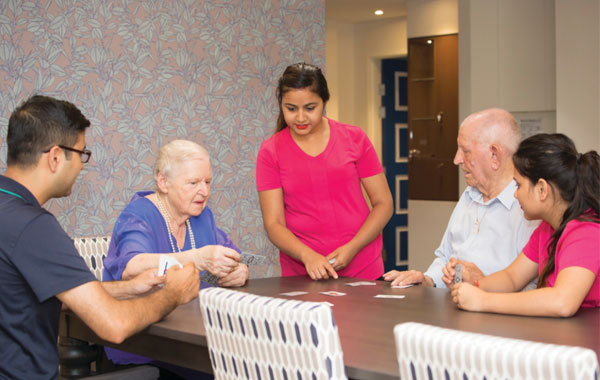

Dementia Care in Australia
Almost one year ago Australians were horrified by an investigative journalism program, which alleged that dementia patients were being unnecessarily drugged with anti-psychotic medication by care staff.
The Lateline program highlighted a potentially serious problem in the aged care industry, as it was discovered that doctors and care staff were sedating older persons with Alzheimer’s disease because it made them easier to manage.
Transcripts from the show state that widespread over prescription of anti-psychotic medications to patients with dementia could cause up to 6,000 premature deaths each year. The narrator also explained that family members are often not told about the drug’s use, which can potentially increase the risk of death by 50%.
Advocacy group Alzheimer’s Australia applauded the media investigation. The organisation has long tried to highlight the misuse of anti-psychotics in the aged care industry.
Almost ten months have passed since this investigation, but there doesn’t seem to be much movement on the part of the government or regulatory agencies.
Urgent Review NeededMark Butler, the Minister for Mental Health and Ageing, gave an interview that accompanied the Lateline investigation. In his interview, he promised to put a federally mandated pharmacy audit of nursing homes on the table urgently.
Following words with deeds, Minister Butler has held two meetings to discuss ways to improve care for individuals with dementia. However, not much has happened since those meetings.
Chris Hatherly, national research manager for Alzheimer’s Australia, took part in the round-table discussions and says that the audit is not currently happening. While he remains impatient, he also understands that the issues surrounding this controversy are very difficult to deal with, and there are not many existing regulatory bodies to which the government can defer.
Although Hatherly readily admits that there are several shining examples of dementia care facilities, anecdotal reports are in line with the Lateline report. He says that care staff often employ the medicine as a first resort, and anywhere between 1000-6000 people die each year from their overuse.
Government ResponseAlthough the government has done little to begin the process of the medications audit, it has taken other steps to improve its dementia care practices and medication management. Minister Butler explained that two projects are in the works, which endeavour to reduce the use of antipsychotics and sedatives for those with dementia in elderly care homes.
Furthermore, on 28 February 2013, the Senate Community Affairs Committees received a referral to inquire and report on the care and management of Australians living with dementia. This means that the Senate committee must investigate the use of chemical and physical restraints.
Change Through EducationDr. Scott Blackwell is a GP specialising in elderly care and stated that there are cases of antipsychotic overuse. He is also points out the progress that is being against these medications and underscores the fact that unnecessary usage has been on a downward trend the last few years.
According to Dr. Blackwell, the reason is because of education in person-cantered dementia and antipsychotic medication management. Doctors have been able to educate care staff that anti-psychotics are not designed to temper bad behaviour in persons with dementia.
John Watkins, President of Alzheimer’s Australia NSW, is in agreement that more education and training could positively change and influence cultures in aged care facilities and reduce the number of individuals who unnecessarily receive anti-psychotics.
Centring Care on the IndividualPerson-centred care emphasises the human being behind the disease, an understanding of the behaviour of the person, and a deeper respect for the patient.
This means that all aspects of an organisation’s care structure will be influenced by the person-centred culture. As a result, psychosocial approaches and alternative behaviour management tools are the first tools employed before anti-psychotics are considered. Hatherly realises that more and more organisations are trying to change their culture of elderly care. He explains that the way patients are treated starts with the management and trickles all the way down to the actual caregivers. Various tactics, such as turning off the TV for one hour each night, can help to reduce volatile behaviour and increase positive interaction between care staff and residents.
Additionally, effective education is the foundation for positive culture change. He explains that sometimes it is necessary to use anti psychotic medications until another solution can be found. What’s most important is that treatment is personalised for each individual.

- Business Name
- DearJane Medical
- Business Category
- Health & Medical Specialists
- Official Website
- dearjane.com.au
- Business Number
- 49 607 023 263
- Social Links
- Phone Number
- 0431 909 321
- Business Location
- 354 Eastern Valley Way
Chatswood 2067
New South Wales
Australia




